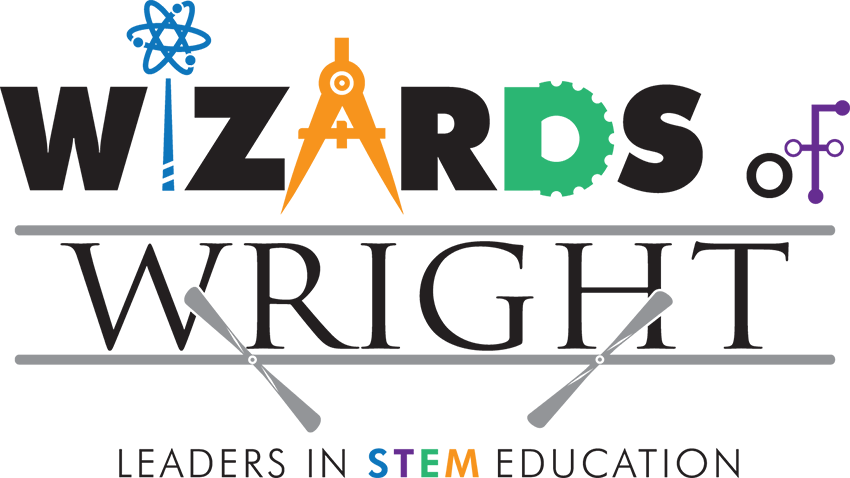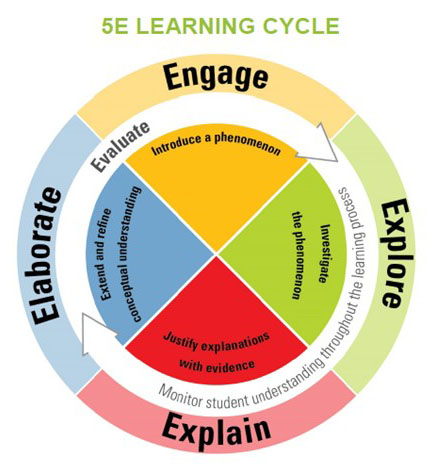|
Apply knowledge of science content to real-world challenges.
Plan and conduct simple scientific investigations using appropriate safety techniques based on explorations, observations and questions.
Employ simple equipment and tools to gather data and extend the senses.
Employ simple equipment and tools to gather data and extend the senses.
Use data and mathematical thinking to construct reasonable explanations.
Communicate with others about investigations and data. |
Observe and ask questions about the world that can be answered through scientific investigations.
Design and conduct scientific investigations using appropriate safety techniques.
Use appropriate mathematics, tools and techniques to gather data information.
Develop and communicate descriptions, models, explanations and predictions.
Think critically and ask questions about the observations and explanations of others.
Communicate scientific procedures and explanation.
Apply knowledge of science content to real-world challenges. |
Apply knowledge of science content to real-world challenges.
Identify questions that can be answered through scientific investigations.
Design and conduct scientific investigations using appropriate safety techniques.
Use appropriate mathematics, tools and techniques to gather data and information.
Analyze and interpret data.
Develop descriptions, models, explanations and predictions.
Think critically and logically to connect evidence and explanations.
Recognize and analyze alternative explanations and predictions.
Communicate scientific procedures and explanations.
Design technological/engineering solutions. |
The world is discovered through exploration.
Exploration leads to observation. Observation leads to questions.
Natural events happen today as they happened in the past.
Events happen in regular patterns and cycles in the natural world. |
Science is both a body of knowledge and processes to discover new knowledge.
Science is a way of knowing about the world around us based evidence from experimentation and observation.
Science assumes that objects and events occur in consistent patters that are understandable through measurable and observation. |
Science is a way of knowing about the world around us based on evidence from experimentation and observation.
Science is a continual process and the body of scientific knowledge continues to grow and change.
Science assumes that objects and events occur in consistent patterns that are understandable through measurement and observation.
Science should carefully consider and evaluate all data including outliers.
Science is based on observable phenomena and empirical evidence.
Science disciplines share common rules for obtaining and evaluating empirical evidence. |
Everyone explores the world which generates questions.
The answer is not always as important as the process.
Questions often lead to other questions.
People address questions through collaboration with peers and continued exploration.
Everyone can see themselves as scientists. |
People from many generations and nations contribute to science knowledge.
People of all cultures, genders, and backgrounds can pursue a career in science.
Scientists often work in teams.
Science requires creativity and imagination. |
Individuals from different social, cultural, and ethnic backgrounds work as scientists and engineers.
Scientists and engineers are guided by habits of mind, such as intellectual honesty, tolerance of ambiguity, skepticism and openness to ideas.
Scientists and engineers rely on human qualities such as persistence, precision, reasoning, logic, imagination and creativity. |
|
It is essential to learn how to identify credible scientific evidence
Ideas are revised based on new, credible scientific evidence. |
Science develops theories based on a body of scientific evidence.
Science explanations can change based on new scientific evidence. |
Science explanations are subject to revision and improvement in light of additional scientific evidence or new understanding of scientific evidence. |

 Wizards of Wright (WOW!) lessons are designed to help students engage and explore a variety of STEM strands and themes. The lessons are also written so that teachers and our WOW! volunteers can explain and elaborate on specific curriculum topics through hands-on activities with the use of up-to-date materials and equipment. Our goal is to always provide your students with the very best experiences possible, while helping you meet your objectives.
Wizards of Wright (WOW!) lessons are designed to help students engage and explore a variety of STEM strands and themes. The lessons are also written so that teachers and our WOW! volunteers can explain and elaborate on specific curriculum topics through hands-on activities with the use of up-to-date materials and equipment. Our goal is to always provide your students with the very best experiences possible, while helping you meet your objectives.